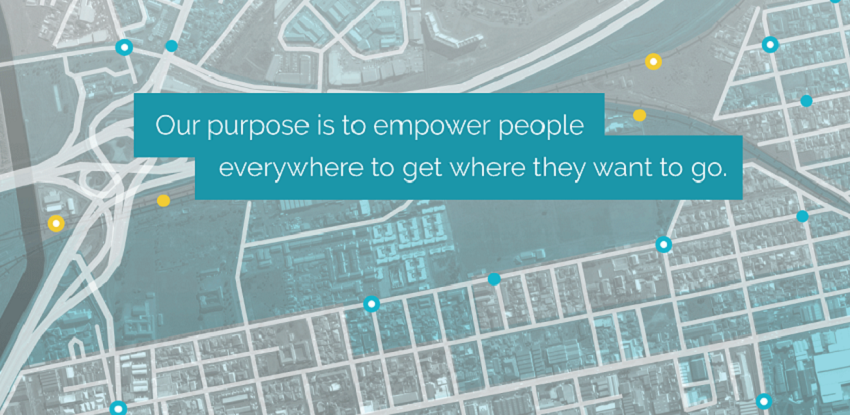The story of South African startup WhereIsMyTransport has its beginnings in the student frustrations of co-founders Devin de Vries and Chris King.
Students at the University of Cape Town (UCT) in 2007, pursuing their honours in Information Systems, the pair decided they had wasted too many days waiting for the university shuttle.
“We decided that it was the issue we’d tackle: solving the problem of unreliable transport, and inaccessible transport data,” de Vries tells Disrupt Africa.
“Along the way, the vision changed from a simple app to alert riders of delays or schedules, to a comprehensive, integrated platform that makes public transport data on all modes available for cities, operators, and developers alike.”
WhereIsMyTransport has certainly gone places, and fast. Last year it moved from a converted garage to an office in Cape Town, and closed an angel funding round. It also became UK-based, with Dave New, who had been lead developer for the last three years, coming on board as a co-founder.
“Today, the team is made up of 38 people across Cape Town and London, and we’ve pivoted fully to providing an integrated, platform solution to public transport that can support an ecosystem of products for the many stakeholders in the system,” de Vries says.
That system was formally launched in August, when the startup secured investment of GBP1.165 million (US$1.536 million) from Goodwell Investments, Omidyar Network and Horizon Ventures as the first closing of a GBP2 million (US$2.6 million) seed round, which is still open.
The investment was secured to fund a new transit API launched, a new open information platform that collates transit data for formal and informal services and combines it with analytics capability and communication tools.
This journey-mapping capability is taken for granted in the developed world, but de Vries says it has the potential to transform transport in emerging cities where monthly commuting costs can be up to 46 per cent of an individual’s monthly income.
“There was no simple data stream to tap into, so we designed and built tools to help operators capture their data, and a format that can connect with all their existing systems,” he says. “Cities and operators couldn’t easily communicate with their riders, so we focused on making it easy for everyone to have the information they needed, when they needed it.”
All of this is a far cry from the original plan for the company, which was to produce a commuter app.
“We quickly learned that this was both inadequate to address the underlying issues transport systems face, and impossible to do as the data and platform didn’t exist. We then tried to make products for transport operators, hoping to provide operational insights and make their data available, but this wasn’t the right fit for us either,” de Vries says.
The right fit has now been found. The WhereIsMyTransport platform is an open API that allows companies and developers to build transport solution using the data provided.
“We support anyone who wants to build an endpoint on our platform. These can be independent developers, companies or cities who are looking to provide information to citizens, or operators who want to reach their passengers,” de Vries says. “We also have a licensed products for operators and cities to use that are connected to the platform, and which are already in use by a number of customers in South Africa.”
While the co-founders’ interest in tackling a transport-related problem stems from personal experience and that of their communities, the specific solution now launched has come from years of discussions with industry and decision makers.
“That realisation was only possible through our experience in the space,” de Vries says.
“By allowing users to plan best route and let them know fare estimates, people can make better decisions. We cannot directly reduce the cost of fares, but by providing information to riders about delays, cancellations, and convenient journeys, we can at least provide commuters with more value for their expenditure.”
The target audience of the WhereIsMyTransport platform is twofold: those who want to build on it, and those that want to access the direct messaging and reporting capabilities it powers.
“There are several major operators in South Africa already doing this, and we’ve received significant interest from cities across the continent and beyond,” de Vries says.
For now, the platform contains formal transport information for Johannesburg, Tshwane, Cape Town, Durban, Port Elizabeth, George, and East London, as well as the Cairo Metro. It will soon be expanded to cover Nairobi. WhereIsMyTransport licenses certain aspects of its platform – and other products that are built on it – to cities, transport authorities, and transport providers.
“These products include tools that allow direct communication between the authority and riders, reporting tools, and real-time data analytics,” de Vries says.
“We want to expand in more cities, and the investment we secured will help us to do that, but it depends on when we receive transit data for a city. As soon as we have information either from governments, operators or crowd-sourced information we can start building out a picture of the situation in that city. We’re actively looking at how we can expand within Africa and beyond.”


